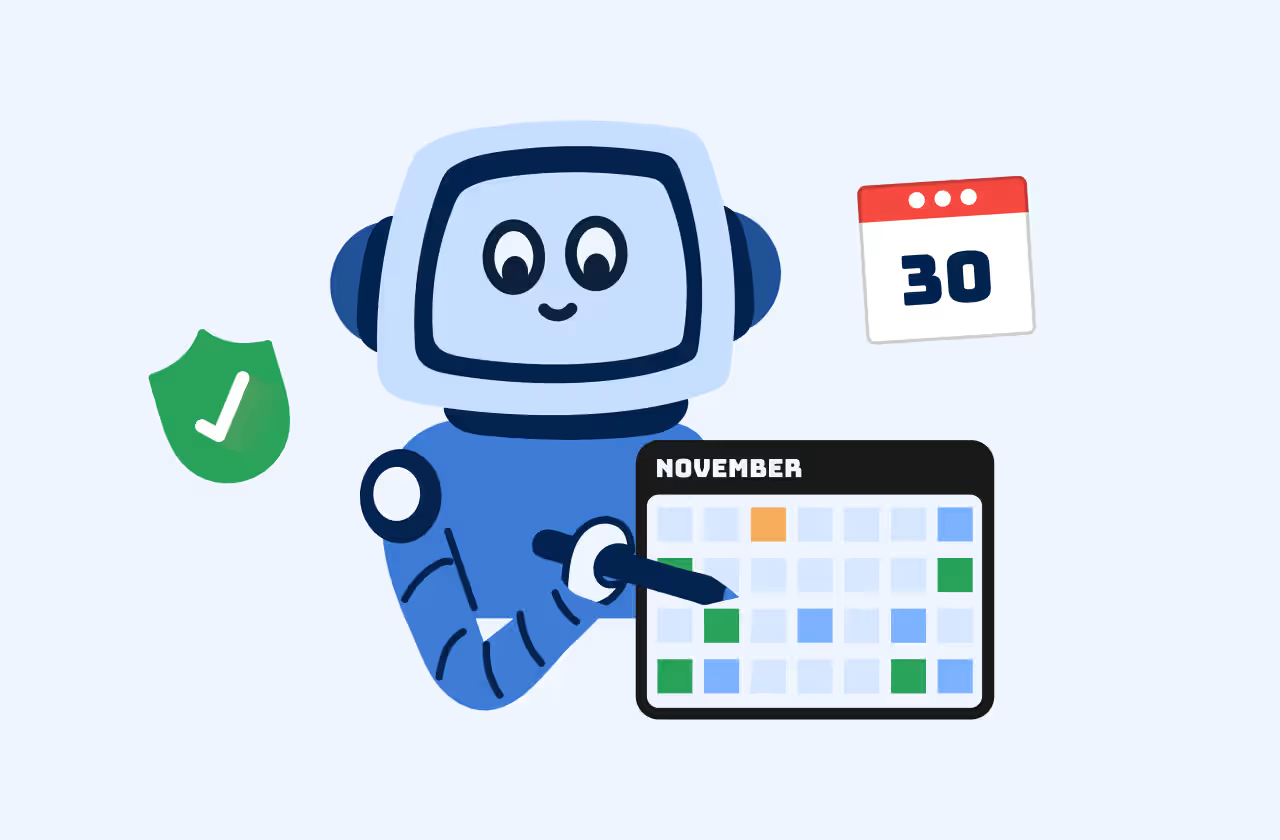Key Takeways
As customer expectations evolve, delays or failures in message delivery can significantly impact user experience and trust. Enter smart routing powered by Artificial Intelligence (AI)—a transformative approach that optimizes message delivery and conversational AI by intelligently selecting the most efficient paths and channels in real-time.
Understanding Smart Routing in Messaging
Smart Routing refers to the dynamic selection of the optimal path for message delivery based on real-time analysis of various factors. Unlike traditional static routing, which follows predefined paths, smart routing adapts to current network conditions, delivery success rates, and other variables to determine the best route for each message.
What Is AI-Powered Smart Routing?
At its core, Smart Routing refers to the system’s ability to dynamically choose the best path, channel, and method for message delivery—based on real-time conditions.
AI enhances this process by introducing learning, prediction, and automation into every routing decision. It doesn’t just react to failures; it predicts and prevents them using historical trends, real-time signals, and advanced pattern recognition.
How AI Enhances Smart Routing?
Let’s unpack the specific ways in which AI transforms message routing from reactive to proactive:
- Predictive Route Selection
AI models analyze past performance data—such as delivery speed, failure rates, latency spikes, and message type success—to forecast which route is most likely to succeed before sending the message.
Why it matters: In environments where one failed OTP SMS can result in a dropped conversion or broken user journey, predicting success matters more than reacting to failure.
Example: If the system knows that Operator A has a 94% success rate on OTP delivery in South Africa during peak hours—but Operator B hits 98% at lower cost—it routes via B automatically, without any manual override.
- Real-Time Anomaly Detection
AI continuously monitors live message delivery performance. When unusual patterns (e.g., sudden drop in delivery rates, carrier timeouts, or high error rates) are detected, the system instantly reroutes traffic through healthier alternatives.
Why it matters: Carriers can go down or become congested without notice. Traditional routing would continue using the same route until it hits multiple failures. AI notices issues after just a few anomalies—sometimes even proactively before failure begins.
- Adaptive Channel Switching
AI evaluates the success probability of various channels—SMS, WhatsApp, email, push, voice—and can recommend or switch channels in real time, depending on:
- User device and location
- Previous engagement history
- Regulatory constraints
- Channel availability
Why it matters: If a WhatsApp broadcast template fails due to an unapproved status or user opt-out, AI can instantly trigger an SMS fallback, ensuring seamless communication.
- Personalized Delivery Optimization
By learning individual user behaviors (open rates, preferred times, past delivery successes), AI creates a “delivery fingerprint” for each recipient. This data informs:
- Best time to send messages
- Preferred channel
- Route selection for that specific user
Why it matters: One-size-fits-all routing ignores end-user variability. AI lets you treat each user as a segment of one—boosting engagement, especially for marketing or onboarding workflows.
- Autonomous Fallback Management
Fallback paths (e.g., rerouting failed WhatsApp to SMS, or SMS to voice) are usually pre-defined. With AI, fallback decisions become autonomous—based on error type, recipient history, and context.
Why it matters: Not all failures are equal. A 5-second delay might not warrant fallback, but a "user not reachable" might. AI reads and responds contextually, preserving resources and maximizing impact.
- Dynamic Cost-to-Reliability Balancing
AI evaluates multiple potential routes based not only on delivery health but also on their cost vs. value:
- For OTPs → prioritize speed and reliability.
- For reminders or marketing → consider slightly cheaper routes with acceptable delivery rates.
Why it matters: Businesses often overspend on premium routes for low-priority traffic. AI makes this decision per message, maximizing ROI without compromising quality.
Use Cases for AI-Powered Smart Routing
- One-Time Passwords (OTPs) & 2FA Authentication
OTPs (SMS or WhatsApp OTP) must reach users within seconds to authenticate logins, transactions, or sign-ups. Delays or delivery failures frustrate users and increase abandonment rates.
How AI Smart Routing Helps?
- Detects congestion or delivery issues with current SMS/WhatsApp routes.
- Reroutes OTPs instantly to the fastest-performing alternative.
- If WhatsApp fails due to opt-out or delay, switches to SMS or voice fallback automatically.
Example: A fintech app uses OTPs for user authentication. AI Smart Routing learns that evening traffic via SMS in a particular region is slow and switches to WhatsApp with lower latency during peak hours.
- E-Commerce Order Confirmations & Delivery Updates
Customers expect real-time updates on orders, shipments, and delivery slots. Network congestion or route issues during flash sales or seasonal surges can cause message delays.
How AI Smart Routing Helps?
- Continuously monitors route health during traffic spikes.
- Auto-balances traffic across SMS/WhatsApp channels to avoid overload.
- Identifies users more responsive on WhatsApp and routes updates accordingly.
Example: During a festive sale, smart routing with AI dynamically shifts shipping update messages from SMS to WhatsApp for users already engaged on that channel, reducing support tickets from “where is my order?”
- Bill Reminders & Payment Notifications
Timely reminders are crucial to avoid late payments, especially in telecom, utilities, insurance, and subscriptions. Bulk message campaigns risk throttling or network slowdowns.
How AI Smart Routing Helps?
- Analyzes recipient behavior (e.g., response patterns to SMS vs. WhatsApp).
- Delivers messages through the channel and time window with highest response probability.
- Adjusts sending cadence based on delivery feedback and payment confirmation logs.
Example: An insurance company sends premium payment reminders i.e. transactional SMS. AI observes that weekend WhatsApp messages have higher payment rates and schedules bulk campaigns accordingly.
- Marketing Campaigns & Promotional Offers
Promotions must reach users at the right moment to be effective. Regulatory limits (like DND) and varied user preferences make mass SMS delivery challenging.
How AI Smart Routing Helps?
- Segments users based on interaction history, channel preferences, and engagement time.
- Delivers time-sensitive offers via the best route/channel per recipient.
- Minimizes cost by using lower-cost routes for bulk campaigns without sacrificing delivery quality.
Example: A food delivery app runs a 2-hour-only discount. AI routes high-intent users through WhatsApp and others via cost-effective promotional SMS, maximizing conversions within a tight window.
- Customer Support Notifications
Users expect fast, personalized updates for their queries or service issues. Delays or message failures cause dissatisfaction and repeated tickets.
How AI Smart Routing Helps?
- Recognizes when live agent availability is low and prioritizes urgent tickets for automated routing via WhatsApp with interactive replies.
- Routes ticket updates via the user’s last engaged channel (SMS/WhatsApp).
- Learns which messages require escalation and adapts routing accordingly.
Example: A telecom provider updates users on support ticket progress. AI ensures critical updates are delivered on WhatsApp during daytime and on SMS at night to avoid delays from unread messages.
- Healthcare Appointment & Medication Alerts
Missed reminders can lead to no-shows or skipped medications. Not all patients are reachable on the same channel due to age, device type, or literacy.
How AI Smart Routing Helps?
- Uses historical engagement to select patient’s preferred communication channel.
- If a WhatsApp reminder is unread within 2 hours, AI triggers an SMS follow-up.
- Adjusts reminder time slots based on user time zone and appointment type.
Example: A health-tech platform wants to send vaccine schedule updates. AI switches to SMS for older patients with low WhatsApp engagement, ensuring better appointment adherence.
- Education: Timetables, Exam Notifications & Alerts
Parents and students need updates on timetables, exam dates, and fee dues. High-volume school broadcasts often hit delivery bottlenecks.
How AI Smart Routing Helps?
- Identifies best-performing routes based on institution type and student region.
- Switches channels based on engagement (e.g., parents prefer WhatsApp, students prefer SMS).
- Throttles large campaigns smartly to avoid rate limits.
Example: An ed-tech platform sends exam result links via WhatsApp. AI notices delivery lag in a region and reroutes to SMS in real-time to ensure zero delay and cost efficiency with SMS pricing.
- Banking & Fintech Alerts
Messages like fund transfers, debit alerts, and fraud warnings must be delivered instantly and securely. Carrier disruptions can’t be allowed to affect message delivery.
How AI Smart Routing Helps?
- Applies enhanced real-time monitoring to high-risk messages.
- Builds route redundancy layers for critical notifications.
- Auto-switches from data channels to SMS if user is on the move or roaming.
Example: A digital bank relies on smart routing for fund transfer alerts. During an aggregator slowdown, AI switched routes without delay, preserving real-time integrity.
Benefits of AI-Driven Smart Routing:
- Increased Delivery Rates: By predicting and avoiding potential delivery failures, AI ensures messages reach recipients more consistently.
- Reduced Latency: AI selects the fastest available routes, minimizing delays in message delivery.
- Adaptive Learning: Machine learning models continuously improve routing decisions based on new data and outcomes.
- Scalability: AI systems can handle vast volumes of messages, making them ideal for businesses with large-scale communication needs.
Conclusion
Incorporating AI-driven Smart Routing into your messaging strategy is no longer a luxury—it's a necessity in today's fast-paced digital environment. By leveraging AI's predictive capabilities, businesses can ensure higher message delivery rates, improved customer engagement, and optimized communication costs.
At Message Central, we're committed to providing cutting-edge solutions that empower businesses to communicate more effectively and reliably. Embrace the future of messaging with our AI-powered Smart Routing and experience unparalleled efficiency and reliability in your communications.










